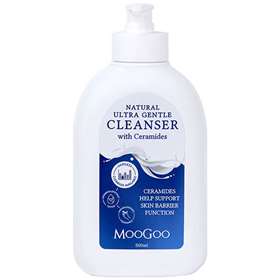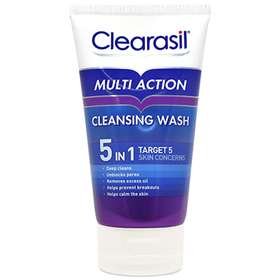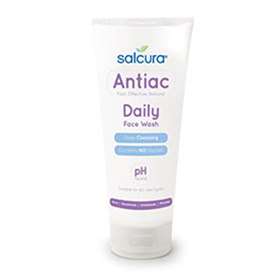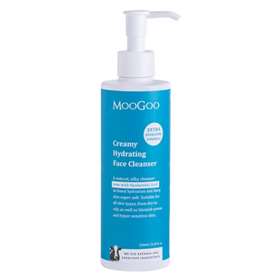1. What do you mean by cleansing?
The term
"to cleanse", is used widely to describe the use of a cleaning product that works to remove dirt, oil and usually bacteria from the skin or the hair. Keeping skin clean is important for good hygiene, preventing conditions such as sweat rash occurring and keeps skin healthy and supple. It is important to maintain a clean face too.
2. Why should I cleanse my face?
Doing so each day will unblock pores from dirt, grime and remove the film of pollutants/impurities that build up throughout the day. Keeping the face clean will also prevent spots from emerging if you have oily, spot prone skin. Regular cleansing and moisturisation will help to keep skin clear, soft & healthy.
3. How can I Cleanse my face?
Cleansing your face can be done in various ways:
- Daily face washes (not featured on this page) - Massaged in and rinsed with water. Specifically formulated for use on the face. Gentle yet thorough in keeping skin clean. Effective and fully refreshing. (Click here to view our daily face washes...)
- Cleansers - Transparent or milky liquids applied and removed with cotton wool. These are gentler on the skin, better for sensitive users. They remove dirt and oil.
- Cleansing Wipes - Tissues readily prepared with a cleansing liquid. Quick and easy and ready to go. Many tend to contain moisturisers too. Ideal for the travel bag.
4. What is a toner?
Toners are an additional product to the cleansing routine. They are designed to remove any remaining residues left behind by your cleanser or face wash, and sweep away any lingering dead skin cells. They also help to tighten and refine the pores, making them less visible. Those who prefer toners tend to have either oily skin or dull skin. Toners are additionally used by some, to prepare the skin before applying a moisturiser.
5. Why can't I use simple soap and water to clean my face?
General body washes are quite harsh for facial skin. If you decide to use standard soap to wash your face, you might experience immediate tightening and eventual drying out of the skin. If your face is sensitive, skin might become red and irritated. This is why face wash and cleansing solutions have been specifically designed for delicate facial skin.
6. What is meant by "skin type" in regards to skin care?
Most facial products, whether they are face washes, cleansers, moisturisers or make up, will be formulated to cater for a certain skin type. This has no connection to a persons age. By skin type we mean:
Normal skin
Affected by little change, generally has no imperfections or over-sensitivity.
Oily skin
Shiny, greasy with open pores and blemishes. The usual area affected is known as the "T-zone" which composes of the forehead, nose and chin. However, cheeks, hair line and neck can also be affected. This is caused by excess oil (sebum) production.
Combination Skin
Those with combination skin are typically affected by an oily T-zone (forehead, nose and chin), combined with normal/dry patches on the cheeks, jaw line, chin and the edges of the nose (although this pattern can vary from person to person).
Dry Skin
This is caused because your skin lacks enough oil. Skin naturally produces oil to keep it moisturised and supple. With out enough oil, areas affected become flaky, scaly and sometimes sore and uncomfortable. Similarly,
dehydrated skin is often mistaken for dry skin. Dry, flaky patches also occur but skin also feels tight all day, minor surface lines appear and skin looks
dull or "grey". Dehydrated skin is caused by smoke, UV exposure and from not drinking enough water. Keeps this in mind.
Sensitive Skin
Many believe that they have sensitive skin when in fact they are just either using the wrong types of product or using a product incorrectly. For example, using a facial scrub every day is too aggressive for the skin and becomes sore. Another example is that you might be using an alcohol based product that is drying your skin out too much. It is important to take a close look at the products you currently use and try to re-evaluate your skin care regime. However, those who seriously suffer with sensitive skin, have a delicate, easily irritated skin surface. Irritants like moisture, heat, chemicals, alcohol, preservatives can cause rashes, contact dermatitis, sore areas and other uncomfortable allergic reactions. There are very gentle/skin friendly products on the market for such sensitive skin.












